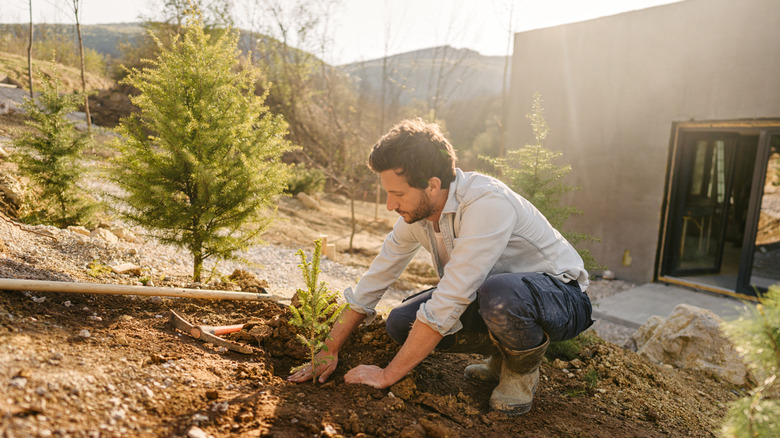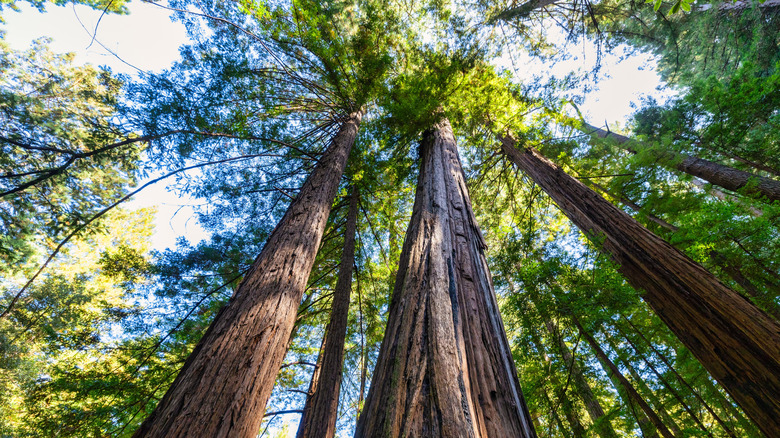The Popular Tree You Shouldn't Be Planting In Your Yard And Why
As the tallest growing tree in the world, the coastal redwood (Sequoia sempervirens) is awe-inspiring and beloved by many. Its iconic dense foliage and textured reddish-brown bark are beautiful to look at, and it is tempting to add one to your yard to enjoy at home. But you may want to avoid planting a redwood tree in your garden. Firstly, these trees grow super tall and are notoriously quick at doing so. They can reach heights of over 200 feet, growing around 3 feet per year. The tallest tree in the world is a coastal redwood, and is around 380 feet. That is taller than the Statue of Liberty, and may be a little bit overwhelming when growing in a backyard!
Furthermore, coastal redwoods drink a lot of water, and it may be difficult for you to keep on top of their water needs. In forests, redwoods get a lot of their water in the drier summer months through fog. In your yard, there may not be the same level of fog, and that means you need to water your young redwood constantly throughout the year. Finally, as these trees are evergreen trees, they will block the sunshine in the winter, making your yard feel gloomy and dark.
Alternative trees to grow instead of coastal redwood
The coastal redwood may not be garden-friendly, but there are other trees you may want to consider that feel just as majestic. From beautiful, fast-growing conifers to luxurious-looking cedars, there will be a coastal redwood dupe perfect for your yard. If you enjoy the height and foliage of the coastal redwood but are looking for something a little bit smaller, the bald cypress (Taxodium distichum) may be a good choice for your yard. This tree can grow up to 70 feet in height and is native to southern swamps and rivers. Unlike the coastal redwood, the bald cypress is a deciduous tree and will lose its leaves in the winter to allow the sunshine in your yard. Hardy to USDA Hardiness Zones 4 to 9, the bald cypress does well in most environments and can tolerate both wet and dry conditions.
If you want an evergreen tree to give you privacy all year round, just like the coastal redwood, you may wish to plant an incense cedar (Calocedrus decurrens) in your yard. This tree is hardy in zones 5 and 8 and can grow up to 50 feet. Its reddish bark and thick foliage are reminiscent of the coastal redwood, but its maintenance needs are low. Another tree to consider for your yard instead of the coastal redwood is the Japanese cedar (Cryptomeria japonica). Its rich, red bark and soft, drooping leaves give this tree a graceful appearance, and it grows up to 70 feet tall in a conical shape. Suitable for zones 5 to 9, the Japanese cedar is low-maintenance and adaptable.

